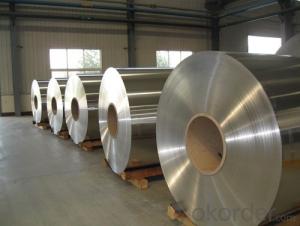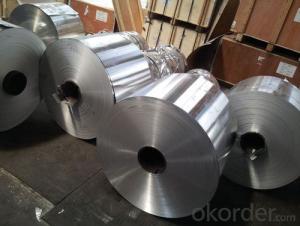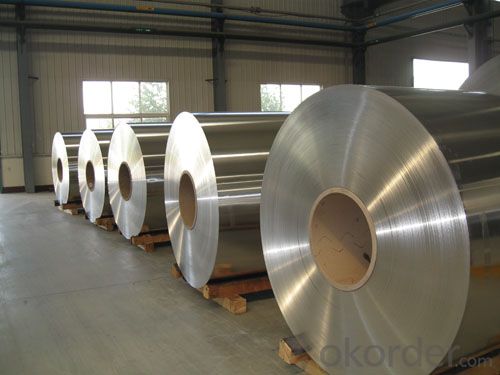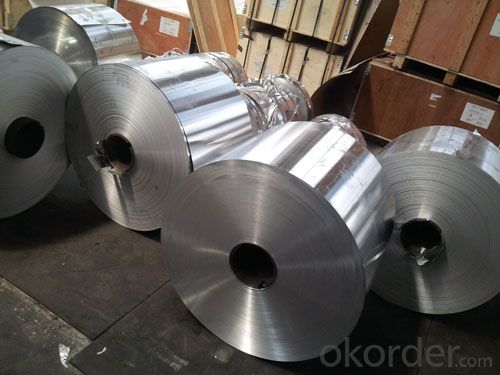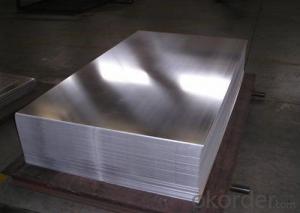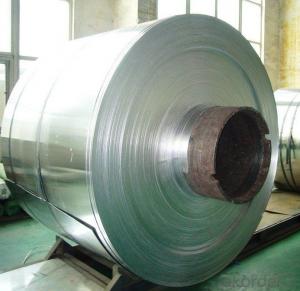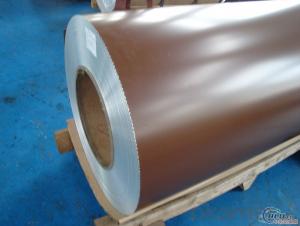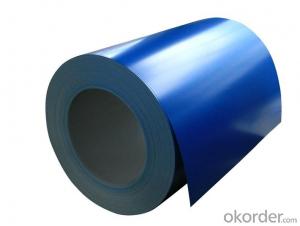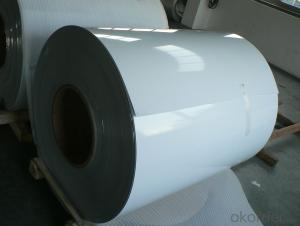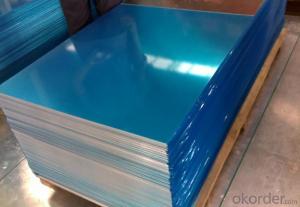1050 Aluminum Coils PVDF Color Coated Aluminum Sheet for Automobile Parts
- Loading Port:
- Shanghai
- Payment Terms:
- TT OR LC
- Min Order Qty:
- 1 m.t.
- Supply Capability:
- 60000 m.t./month
OKorder Service Pledge
OKorder Financial Service
You Might Also Like
Specification
PVDF Color Coated Aluminium Sheet For Automobile Parts
Specifications
Standard | GB/T3190-2008, GB/T3880-2006, ASTM B209, JIS H4000-2006 .etc |
Thickness | 0.2-8.0 mm aluminium 7075 t6 |
Width | 1250mm 1000mm 1219mm or as your requirements |
MOQ | 8 Ton |
Package | Standard export package, by wooden box or as required. |
Application | 1060 is widely used in the strength requirements of the product. Products commonly used in signs, billboards, building exterior decoration, bus body, high factory wall decoration, kitchen sink, lamp, fan, electronic components, chemical apparatus, sheet processing, deep drawing or spinning hollow ware, welding parts, heat exchangers, Bell surface and plate, plates, kitchen utensils, accessories, safety equipment and other. |
Characteristics
1) Excellent weather-proof durability
2) Anti-ultraviolet
3) High erosion resistance
4) Stable color and gloss
5) Good mechanical processing performance
6) Abrasion resistance
7) Anti-impact
8) High flexibility
Coating varieties
Polyester Coatings (PE)
PE (polyester) coatings exhibit an excellent combination of hardness, flexibility, flow, appearance, and superior resistance to dirt retention in indoor and outdoor applications. These coatings are highly resistant to abrasion, metal marking, staining, and marring, and require minimal maintenance. Glazetech uses polyester paints which provide excellent colour and gloss retention properties.
Polyvinylidene Fluoride Coatings (PVDF)
PVDF (polyvinylidene fluoride) is a chemical resistant thick film barrier coating commonly used in architectural applications where both excellent appearance and substrate protection must be maintained over a long period of time. This coating is unaffected by most chemicals and solvents and has excellent wear and abrasion resistance. PVDF also has a high dielectric strength, excellent resistance to weathering and the ability to self extinguish.
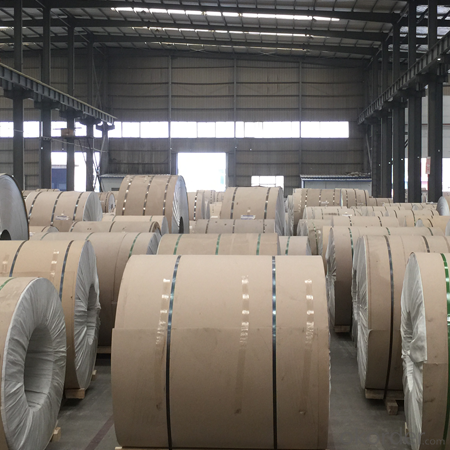
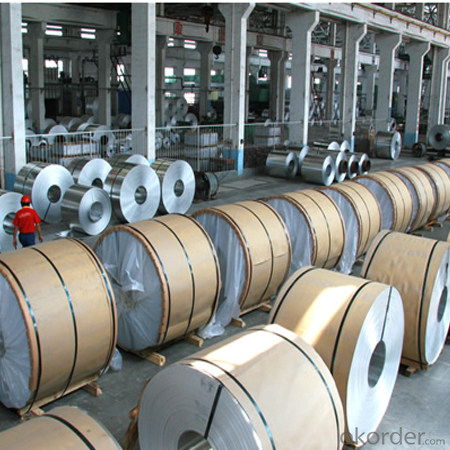
- Q: Are aluminum coils affected by magnetic fields?
- No, aluminum coils are not affected by magnetic fields as aluminum is not a magnetic material.
- Q: Can aluminum coils be used in automotive heat exchangers?
- Indeed, automotive heat exchangers can utilize aluminum coils. The automotive industry favors aluminum for heat exchangers due to its exceptional thermal conductivity, lightweight quality, and resistance against corrosion. These attributes enable aluminum coils to effectively transfer heat between fluids or gases, rendering them highly suitable for automotive heat exchangers. Furthermore, aluminum coils are easily manufacturable and can be molded into diverse shapes and sizes, thereby further enhancing their appropriateness for automotive applications.
- Q: How are aluminum coils used in the production of architectural panels?
- The production of architectural panels heavily relies on aluminum coils as the primary material. These coils are typically made from high-quality aluminum alloy, which possesses desirable characteristics such as being lightweight, resistant to corrosion, and malleable. To begin the process of using aluminum coils for architectural panels, the raw material is uncoiled. The coils are then unwound and flattened to create flat sheets of aluminum. These sheets are later cut to the desired size and shape, based on the specific design requirements of the architectural panel. Once the aluminum sheets are prepared, various manufacturing techniques can be employed to further process them. Bending, folding, welding, and punching are some of the techniques used to achieve the desired shape and functionality of the panel. The malleability of aluminum enables precise shaping and customization, making it an ideal material for architectural panel production. Furthermore, aluminum coils can undergo coating or treatment to enhance their appearance, durability, and performance. Coatings like paint, powder coating, and anodizing can be applied to the aluminum surface to provide protection against weathering, UV radiation, and corrosion. These coatings also offer aesthetic options, allowing architects and designers to choose from a wide range of colors and finishes for their architectural panels. Architectural panels manufactured using aluminum coils offer numerous advantages. Firstly, due to the lightweight nature of aluminum, these panels are easier to handle and install, resulting in reduced labor costs and time. Additionally, aluminum's corrosion resistance ensures that architectural panels remain durable and visually appealing even in harsh weather conditions. The malleability of aluminum also allows for intricate designs and complex shapes, enabling architects to create visually striking and unique building facades. In conclusion, aluminum coils are an essential component in the production of architectural panels. Their lightweight, corrosion resistance, and malleability properties make them an ideal material for creating durable and aesthetically pleasing panels. Whether it is for high-rise buildings, residential homes, or commercial structures, aluminum coils play a crucial role in the production of architectural panels that enhance the visual appeal and functionality of modern architecture.
- Q: What are the different tempers available for aluminum coils?
- Aluminum coils have various tempers available, each with its own unique characteristics and properties. Let's explore the most common tempers: 1. O Temper, also known as annealed or soft temper, is the softest and most ductile option. It has low strength but high formability, making it ideal for applications that involve extensive forming or bending. 2. The H temper series includes different levels of work hardening, resulting in increased strength and reduced formability compared to the O temper. The H temper range consists of H1X, H2X, H3X, H4X, H5X, and H6X, with each subsequent number indicating a higher level of work hardening. These tempers are commonly used when moderate to high strength is required. 3. The T temper series, also known as heat-treated tempers, involves thermal treatments to achieve a specific combination of strength and formability. The most common T tempers are T3, T4, T6, and T7. T3 and T4 are solution heat-treated and naturally aged, offering a good balance of strength and formability. T6 and T7 are solution heat-treated and artificially aged, resulting in higher strength but reduced formability. 4. The F temper, also known as as-fabricated temper, is obtained through hot or cold working without subsequent thermal treatments. It provides improved strength and hardness compared to the O temper but is lower than the H and T tempers. These various tempers enable the use of aluminum coils in a wide range of applications, including automotive parts, aerospace components, building materials, and consumer goods. The choice of temper depends on the specific requirements of the application, such as desired strength, formability, and corrosion resistance.
- Q: Can aluminum coils be painted for custom designs?
- It is indeed possible to paint aluminum coils to achieve personalized designs. The act of painting the coils opens up a world of limitless options for customization and aesthetic appeal. Various colors, patterns, and designs can be applied to the coils, catering to individual tastes and needs. To complete the painting process, the surface must first be cleaned, followed by the application of a primer and the desired paint or coating. Through this method, one can create distinctive and captivating custom designs suitable for a wide array of purposes, including architectural elements, signage, automotive components, and more. Moreover, the paint not only safeguards the aluminum from corrosion but also enhances its durability.
- Q: Are aluminum coils suitable for electrical insulation applications?
- No, aluminum coils are not suitable for electrical insulation applications. Aluminum is a highly conductive material, meaning it allows the flow of electricity. In electrical applications, insulation is required to prevent the flow of electricity and protect against short circuits or electrical shocks. Therefore, materials with low electrical conductivity, such as plastics, rubber, or fiberglass, are commonly used for electrical insulation purposes.
- Q: Can aluminum coils be used in high-pressure or high-temperature environments?
- No, aluminum coils are not suitable for high-pressure or high-temperature environments as they have lower strength and melting points compared to other materials.
- Q: How are aluminum coils processed and shaped into different forms?
- Aluminum coils are processed and shaped into different forms through a series of manufacturing processes. First, the coils are uncoiled and fed into a machine where they are cleaned, removing any dirt or impurities. Then, the coils are passed through a series of rollers that apply pressure to shape the aluminum into the desired form, such as sheets, plates, or foils. Additional processes like annealing, cutting, and bending may be applied to further shape the aluminum. Finally, the formed aluminum is typically subjected to surface treatments, such as anodizing or coating, to enhance its durability or appearance.
- Q: Hi,I am fairly new to design and have been doing technical drawing for only a few months. We have an item, that supports up to about 800KG of weight, as a C shaped channel. We are currently making this out of 3mm Mild Steel. Due to a new design, we are changing this design to avoid welding and painting the above part. This means we will be making the part from Galv sheet.I would like to make the part from Aluminium because 1) There will be no rust, 2) I think it will look better than Galv sheet but I need to keep the cost down.We use 3mm mild at the moment, because it is easier to weld than 2mm, not for strength really.Therefore, my question is, in everybody's opinion, would it be OK to make it from 2mm Aluminium, or is this likly to end in disaster?FYI, the part is 1600mm long, then on each long side there are presses of up 250mm, down 80mm and down 20mm. The weight is supported at 4 points on the 80mm flanges.What a question for my first go Answers! TIA
- That is actually a complicated question that may need serious engineering. First of all, pure aluminum is rather soft and flexible and you may need to consider an aluminum alloy, perhaps an alloy used in aircraft structures to resists loads. The nature of the load (concentrated or distributed) may affect how the channel tends to bend and the strength needed to resist bending. C channels many tend to bend, shear, twist or buckle and could also fail where loads are applied or at end connections. Likely, mechanical engineers would make a freebody diagram of the channel and study its loading and physical restraints to calculate the strengths needed. Then it is likely a safety factor (10%, 50%, etc. extra strength) would be required depending upon the consequences of failure. If public safety is at issue, calculations should be performed (or checked) by a licensed professional engineer. Because channels (usually) can not be custom made at rolling mills (unless there is a huge order) the next larger available channel in the correct alluminum alloy may be required. Often insurance and product liability demand a correct solution. If the existing mild steel flange works, it (or an assembly drawing) could be presented to show the necessary configuration and help identify possible interferences if channel dimensions must change. Depending upon environment (wet, dry etc.) mixing metal parts may raise corosion concerns. For example, drainage from copper flashings on roofs tends to corode aluminum gutters. Aluminum alloy will likely be more expensive than mild steel and titanium would be stronger and lighter than aluminum (and is now being used in aircrafts) but would be even more expensive. Channel cost may be more important in a large production run than in a one of a kind structure.
- Q: How are aluminum coils protected against corrosion during storage?
- Various methods and precautions are employed to protect aluminum coils against corrosion during storage. One commonly used approach involves applying a protective coating or film to the surface of the coils. This coating acts as a barrier, preventing direct contact between moisture and oxygen and the aluminum, thereby preventing corrosion. Another method involves using desiccants or moisture-absorbing materials. These materials are often placed within the packaging or storage containers alongside the aluminum coils to absorb any existing moisture. By reducing the moisture levels in the storage environment, the risk of corrosion is significantly reduced. Proper storage conditions are also crucial in safeguarding aluminum coils against corrosion. It is essential to store the coils in a dry, well-ventilated area, away from direct sunlight and other sources of moisture. Additionally, it is important to ensure that the coils are stored above ground and kept separate from any chemicals or substances that may cause corrosion. Regular inspections and maintenance are necessary to prevent corrosion during storage. This includes checking for any signs of damage or wear on the protective coating and promptly addressing any issues that arise. Furthermore, maintaining a clean storage environment, free from dust, dirt, and other contaminants, helps preserve the integrity of the protective coating and prevents corrosion. In summary, a comprehensive approach consisting of protective coatings, moisture-absorbing materials, proper storage conditions, and regular maintenance is essential for effectively protecting aluminum coils against corrosion during storage. These measures ensure that the coils remain in optimal condition and are readily available for use when needed.
Send your message to us
1050 Aluminum Coils PVDF Color Coated Aluminum Sheet for Automobile Parts
- Loading Port:
- Shanghai
- Payment Terms:
- TT OR LC
- Min Order Qty:
- 1 m.t.
- Supply Capability:
- 60000 m.t./month
OKorder Service Pledge
OKorder Financial Service
Similar products
Hot products
Hot Searches
Related keywords
